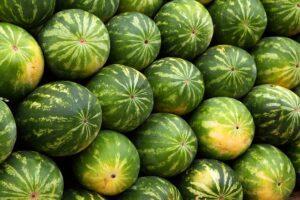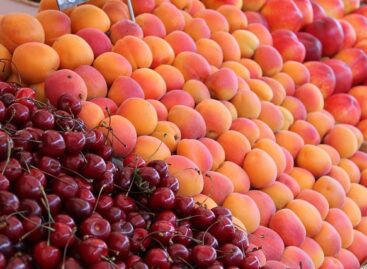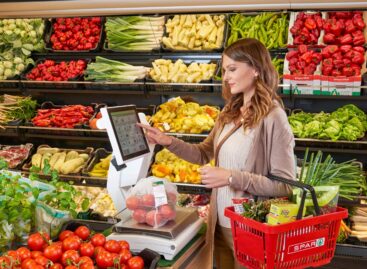Significantly less fruit is ripe in the EU
Half of the EU’s watermelon crop comes from Spain and Italy, which also supply 30% of Europeans’ melons.

(Photo: Pixabay)
According to data from Eurostat, the European statistical office, a total of 8.6 million tons of watermelons, melons, strawberries, peaches and nectarines were produced in the EU in 2022, which represents a 6.3% decrease compared to 2021 (9.2 million tons). The most serious decrease occurred in the yield of watermelon (-18.4 percent) and melon (-9.5 percent), while peach and nectarine production increased by 5.6 percent, and strawberry production remained unchanged.
The largest fruit producer in the EU is Spain
Almost half (45.4 percent) of watermelons produced in the EU, almost a third (32 percent) and more than a quarter (27.3 percent) of strawberries and more than a quarter (26.9 percent) of peaches and nectarines were grown in Spain. This is followed by Italy, which produces more than a third of EU melons (36.1%), peaches and nectarines (35.6%), and a quarter of watermelons (25.6%).
Other EU member states excel in growing other fruits
For example, Poland ranks second in strawberry production (16.7 percent of the total EU yield), Greece is second in peaches and nectarines (27.1 percent) and third in watermelon (12.4 percent), France is third in cantaloupe ( 18.8 percent) and Germany is third in terms of strawberry cultivation (11.1 percent).
Related news
József Viski: Adaptation and competitiveness are key for the horticultural sector
🎧 Hallgasd a cikket: Lejátszás Szünet Folytatás Leállítás Nyelv: Auto…
Read more >Frost damage devastated last year’s fruit crop
🎧 Hallgasd a cikket: Lejátszás Szünet Folytatás Leállítás Nyelv: Auto…
Read more >The economic sentiment index deteriorated in the euro area and the EU in February, but improved in Hungary
🎧 Hallgasd a cikket: Lejátszás Szünet Folytatás Leállítás Nyelv: Auto…
Read more >Related news
SPAR is preparing for an Easter rush: it is filling its stores with 570 tons of smoked meat products
🎧 Hallgasd a cikket: Lejátszás Szünet Folytatás Leállítás Nyelv: Auto…
Read more >Focus on the domestic fishing sector at SIRHA Budapest
🎧 Hallgasd a cikket: Lejátszás Szünet Folytatás Leállítás Nyelv: Auto…
Read more >









